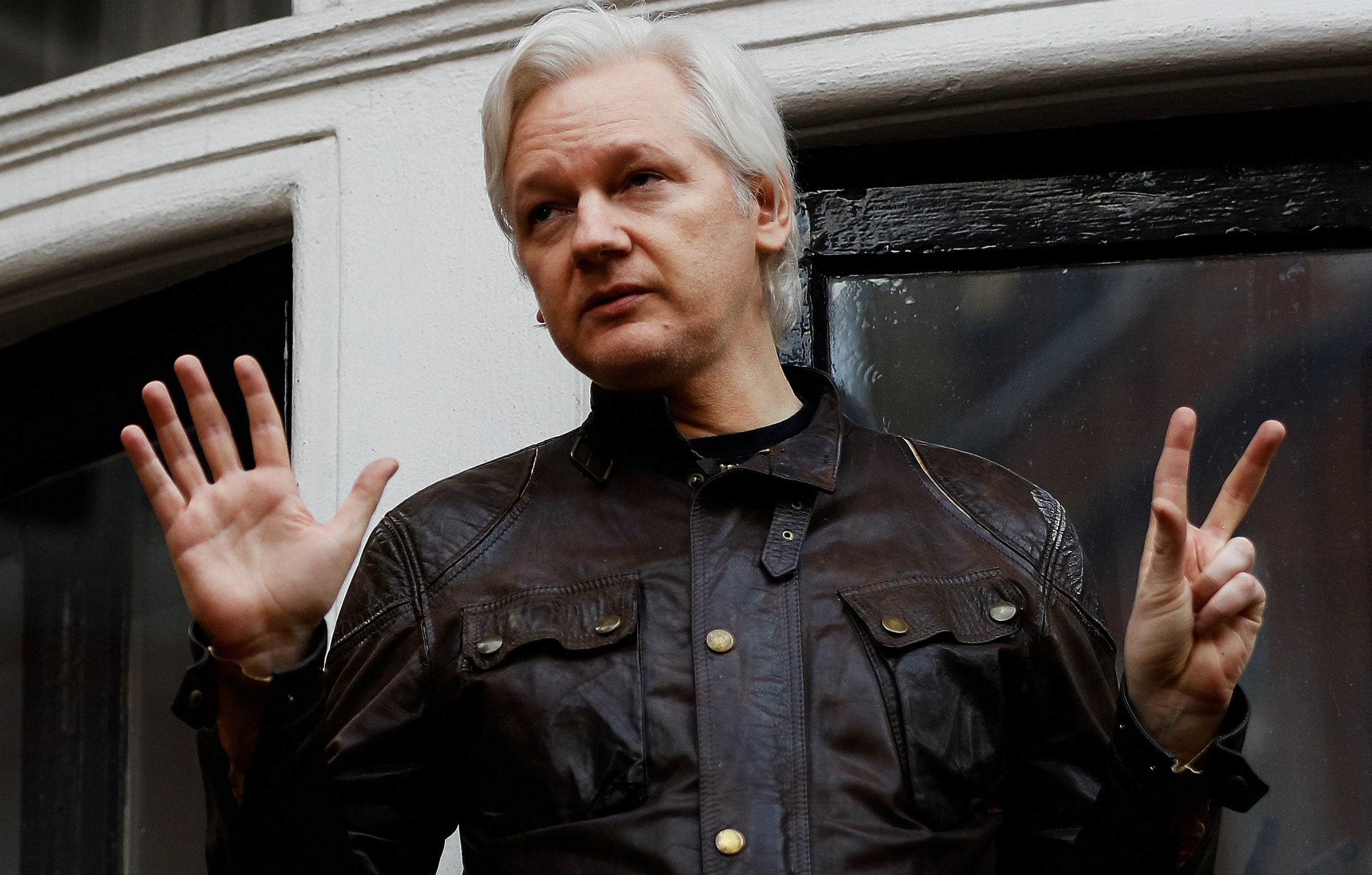Trump campaign data firm 'approached WikiLeaks during US election for Hillary Clinton's deleted emails'
Both organisations figured prominently in 2016 election

Your support helps us to tell the story
From reproductive rights to climate change to Big Tech, The Independent is on the ground when the story is developing. Whether it's investigating the financials of Elon Musk's pro-Trump PAC or producing our latest documentary, 'The A Word', which shines a light on the American women fighting for reproductive rights, we know how important it is to parse out the facts from the messaging.
At such a critical moment in US history, we need reporters on the ground. Your donation allows us to keep sending journalists to speak to both sides of the story.
The Independent is trusted by Americans across the entire political spectrum. And unlike many other quality news outlets, we choose not to lock Americans out of our reporting and analysis with paywalls. We believe quality journalism should be available to everyone, paid for by those who can afford it.
Your support makes all the difference.A political data firm employed by the Trump campaign sought to work with WikiLeaks, publisher Julian Assange has said.
The proposed partnership was first uncovered by the Daily Beast, which reported that Cambridge Analytica approached the anti-secrecy organisation in an effort to locate the 33,000 emails deleted from Democratic nominee Hillary Clinton’s private email server.
The Trump campaign effectively found an ally in WikiLeaks during the campaign when the organisation published thousands of internal emails from Democratic Party operatives, moving Donald Trump to proclaim “I love WikiLeaks” in response to one disclosure.
While Mr Assange did not address whether that the interaction with Cambridge Analytica involved Ms Clinton’s emails, he confirmed on Twitter that the firm sought to work with WikiLeaks and was rebuffed.
A spokesman for Cambridge Analytica did not respond to a message seeking comment.
The whereabouts of the deleted emails and Ms Clinton’s use of a private email server while she was serving as secretary of state were both prominent issues during the presidential contest. Mr Trump and allies often accused Ms Clinton of duplicity or criminality, leading chants of “lock her up” at rallies and directly threatening to jail Ms Clinton during a presidential debate, and Mr Trump publicly invited Russia to search for the emails.
After playing roles in the contentious 2016 election, both WikiLeaks and Cambridge Analytica have become entangled in ongoing investigations into Russia’s effort to influence the outcome of the vote.
During the campaign, WikiLeaks published reams of hacked emails from the Democratic National Committee and from John Podesta, an adviser to Ms Clinton.
American intelligence agencies concluded that the Russian government directed the hacks, part of what they later described as a broad-based disruption campaign ordered by Russian President Vladimir Putin.
Mr Assange has denied that the Russian government supplied his organization with the emails.
Congressional investigators have also shown an interest in Cambridge Analytica, asking the organization for information about its work for the Trump campaign.
In a statement to the media, Cambridge Analytica said earlier this month that it was complying but was not under investigation and faced “no suggestion of wrongdoing”.
Without mentioning Cambridge Analytica by name, the head of Mr Trump's re-election committee released a statement distancing the campaign from the data firm. In the statement Michael S Glassner heaped praise on the Republican National Committee for steering “the most sophisticated data targeting program in modern American history”, obliquely rejecting the notion that Cambridge Analytica formed a crucial part of the campaign's voter outreach effort.
“We as a campaign made a choice to rely on the voter data of the Republican National Committee”, Mr Glassner said, and “any claims that voter data from any other source played a key role in the victory are false”.
Join our commenting forum
Join thought-provoking conversations, follow other Independent readers and see their replies
Comments